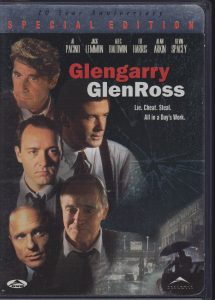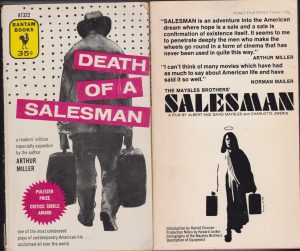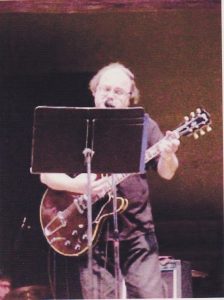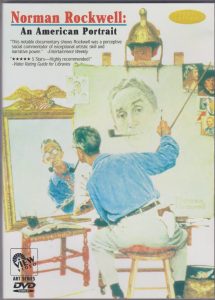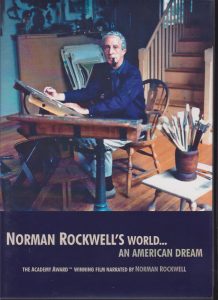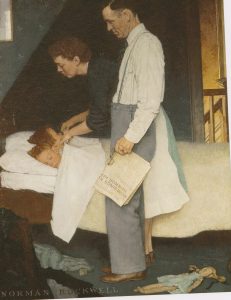-
Recent Posts
Recent Comments
Archives
- August 2024
- July 2024
- June 2024
- May 2024
- April 2024
- March 2024
- February 2024
- January 2024
- December 2023
- November 2023
- October 2023
- September 2023
- August 2023
- July 2023
- June 2023
- May 2023
- April 2023
- March 2023
- February 2023
- January 2023
- December 2022
- November 2022
- October 2022
- September 2022
- August 2022
- July 2022
- June 2022
- May 2022
- April 2022
- March 2022
- February 2022
- January 2022
- December 2021
- November 2021
- October 2021
- September 2021
- August 2021
- July 2021
- June 2021
- May 2021
- April 2021
- March 2021
- February 2021
- January 2021
- December 2020
- November 2020
- October 2020
- September 2020
- August 2020
- July 2020
- June 2020
- May 2020
- April 2020
- March 2020
- February 2020
- January 2020
- December 2019
- November 2019
- October 2019
- September 2019
- August 2019
- July 2019
- June 2019
- May 2019
- April 2019
- March 2019
- February 2019
- January 2019
- December 2018
- November 2018
- October 2018
- September 2018
- August 2018
- July 2018
- June 2018
- May 2018
- April 2018
- March 2018
- February 2018
- January 2018
- December 2017
- November 2017
- October 2017
- September 2017
- July 2017
- June 2017
- May 2017
- April 2017
- March 2017
- February 2017
- January 2017
- December 2016
- November 2016
- October 2016
- September 2016
- August 2016
- July 2016
- June 2016
- May 2016
- April 2016
- March 2016
- February 2016
- January 2016
- December 2015
- November 2015
- October 2015
- September 2015
- August 2015
- July 2015
- June 2015
- May 2015
- April 2015
- March 2015
- February 2015
- January 2015
- December 2014
- November 2014
- October 2014
- September 2014
- August 2014
- July 2014
- June 2014
- May 2014
- April 2014
- March 2014
- February 2014
- January 2014
- December 2013
- November 2013
- October 2013
- September 2013
- August 2013
- July 2013
- June 2013
- May 2013
- April 2013
- March 2013
- February 2013
- January 2013
- December 2012
- November 2012
- October 2012
- September 2012
- August 2012
Categories
Meta
Chat GPT Re. My Blog
Posted in Uncategorized
Leave a comment
“Glengarry Glen Ross” (1992) Review
An amazing ‘little film’ packed with star performances with script adapted from his original play by David Mamet. This may be the best male-ensemble film of the past half-century.
The plot is about desperate real estate salesmen looking for big scores by defrauding vulnerable people. Every actor in this classic is excellently outstanding: Al Pacino, Jack Lemmon, Ed Harris, Alan Arkin, Alec Baldwin, and Jonathan Pryce (in a supporting, but career-defining role).
Baldwin kicks off things as a foul-mouthed successful head-office motivator sent to criticize a small urban real-estate office’s weak, unlucky salesmen. He is an asshole-devil personified right down to his watch and car.
There follow interesting duo scenes such as a highly-aggressive Ed Harris trying to convince a cowardly Alan Arkin to rob the office after-hours to get the ‘good’ Glengarry leads.
In the sleazy restaurant-bar across the street, hot-shot Al Pacino uses all manner of corrupt appeals to sell land to shnook client Jonathan Pryce. There is also a memorable follow-up scene in which the henpecked Pryce confronts Pacino, to get his cheque back, in the divey office after it’s been robbed.
Ironically admired by Pacino, veteran ‘Shelly the Machine’ (played by Jack Lemmon) is the most pathetic, desperate salesman of all–unable to make an actual sale if his life depended on it. His scenes with Pacino, with clients in person and on the phone are dishonestly built on continuous lies and fraudulent representations. Imagine an ultra-desperate Willy Loman.
Alan Arkin is more understated, but as confused as any of the others, trying to hang on to his honesty as the police come to investigate the robbery. Though he is the branch boss, Kevin Spacey cannot be trusted and is shamelessly willing to accept bribes from his own workers, and when crunch comes to crunch, it is he who easily turns in the salesman who did the mysterious robbery and couldn’t bribe him enough.
The movie’s tense atmosphere is 100% believably effective from the credits onward including: a late night street scene by an el in a derelict part of a city, non-stop pouring rain and thunder throughout act 1, moody jazz snippets by Wayne Shorter, Al Jarreau, and David Sanbourn, brilliant cinematography (Juan Ruiz Anchia) and direction (James Foley), with absolutely nothing getting in the way of the uniformly tour-de-force acting.
This is a must-see classic film about the American Dream from the perspective of men, notably salesmen who have to prostitute themselves and any moral values to achieve high sales figures and a contest Cadillac offered by Baldwin’s devil-figure.
*My only caution is about the realistic dialogue language; it is the saltiest of male diction imaginable throughout the hour and 40 minute assault on whatever values a viewer may hold dear. Not recommended for family viewing. Highly recommended, though, for the fabulous acting, the intense characterizations, the incredibly powerful scenes between duos, and the indelible messages re. corruption and the myriad ways of loserness, North American-caucasian style. 10 out of 10.
Bonus: the 10 Year Anniversary double DVD shown above also contains several extras, the best of which are a feature called “Always Be Closing” which mentions key salesmen movies and features Albert Sayles, co-director of the celebrated Salesman documentary, Lemmon on Charley Rose, and insightful audio interviews with Baldwin and Arkin, the latter who says that this was his most challenging, exacting role ever–that he had to have different thoughts each time he uttered a syllable!
Two other classic salesmen works:
1949 and 1969, respectively.
Posted in Uncategorized
Leave a comment
One Truism of Choices
is that one choice leads to many other subsequent ones (and not always welcome consequences).
For instance, if I buy a house, I will have many choices about how to pay for it, the length of mortgage and size of payments. If I get a dog, I will have to provide water and food for it, let it outside to go to the bathroom, take it for walks, buy various accessories, pay for grooming and vet bills. People often don’t consider the ramifications of choices and the responsibilities they entail down the road.
This same theme has been long borne out by literature of the past and the lessons about choices that characters make. For instance, in The Odyssey, after being imprisoned on Calypso’s island for seven years, Odysseus starts for Ithaca–his home–and has to make many choices in dealing with the dangers that await him along the way: choices that keep him alive and ensure his safe return finally.
In Oedipus the King, Oedipus doggedly chooses to learn the truth about who killed his city’s former king and ignores the prophet Tiresias’s advice until he learns that he himself is the murderer who also married his mother, the dead king’s wife. He ends up blinding himself and going into exile.
In Shakespeare’s tragedy, Macbeth chooses to kill Scotland’s rightful king which leads to more murders, cover-ups, and national civil war. And so forth. We can learn much about choices, particularly bad ones from literature, and how one choice creates a domino effect of follow-up choices and consequences for individuals.
Posted in Uncategorized
Leave a comment
The Non-Teaching of Canadian History in Schools and Universities
(first posted on July 1, 2020 by rdavies)
Long gone are the survey courses in both of my youth. With the widespread usurpation by politically-correct topics, kids and newcomers no longer know, study, or encounter the following:
Frederick Banting
Alexander Graham Bell
Billy Bishop
the Bluenose
Robert Borden
Brebeuf
General Brock
the amazing building of the first transcontinental railway (CPR)
John Cabot
Guy Carleton
Jacques Cartier
Samuel de Champlain
Company of New France
Confederation
Conscription
Constitutional Act
Coureurs de Bois
Depression
Diefenbaker
Adam Dollard at Long Sault
the Donnellys
Tommy Douglas
Durham Report
Lief Ericson
Evacuation of Japanese Canadians
Expo ’67
First World War
FLQ Crisis
Fort Louisbourg
Terry Fox
Fur trade
Alexander Galt
Group of Seven
Halifax Explosion
Gordie Howe
Joseph Howe
Henry Hudson
Hudson’s Bay Company
Imperial Conference
Jesuits
Henry Kelsey
William Lyon Mackenzie King
Klondike Gold Rush
Sir Wilfrid Laurier
La Verendrye
League of Nations
Literature, Canadian
Loyalists
John A. MacDonald
Thomas D’Arcy McGee
Alexander Mackenzie
Jeanne Mance
Montcalm
New France
NORAD
North West Company
North-west Passage
North West Rebellion
Painting, Canadian
L.B. Pearson
Plains of Abraham
Port Royal
Quebec Act
Queenston Heights
Radisson
Red River Colony
Red River Rebellion
Regina Tornado
Louis Riel
St. Lawrence Seaway
Second World War
Seigneurial system
Seven Oaks Massacre
Seven Years War
Joey Smallwood
David Suzuki
Ken Taylor
Tecumseh
David Thompson
Treaty of Paris
Pierre Trudeau
Sir Charles Tupper
Union Nationale
George Vancouver
William Van Horne
Voyageurs
War of 1812
Winnipeg Strike
………………….
How well do Canadian kids, new Canadians, and Canadians under 60 know the history of our country? How well do they know, understand, and appreciate the broader, big-picture sweep of our country’s culture and its most famous and important people and events? Many have little or no sense of pre-2020 Canadian history back to the Viking visits in Newfoundland in the 11th century. *That’s 10 centuries of ignorance about our country, basically. A major cultural vacuum.
* It’s interesting, with all the new incoming First Nations curricula, how little attention is now being paid to the rest of Canada’s history as fostered and generated mainly by the English, the French, the Scots, and European immigrants before 1967 in nine of those 10 centuries–the actual industrious millions who physically built this country as we know it (and often take for granted) and made it relatively peaceful, educated, and civilized before recent heavily agenda-ed and political times.
……………………………………………………………………….

(Decent, well-informed, grateful, conscientious, patriotic citizens remove mindless dumb-ass spray-painted vandalism from a statue dedicated to the Father of Confederation, who was instrumental in first uniting this country back in the 19th century and keeping it from being absorbed by the U.S.)
Further: The past is now more forgotten and slighted than ever these daze. The ironic result of this is that few people under 50 and most newcomers to Canada have little or knowledge of this country’s history and the process which led us all here to now. No context and no large significant frame of reference for viewing things. This is yet another reason why politically-correct types have run amok with zero facts, perspective, context, understanding, and appreciation of the past. The sort of recklessness, nastiness, and vandalism, for instance, that has resulted with historical statues and monuments being vandalized or removed is often blind and cases of reverse discrimination (something seldom discussed when political correctness is being cited or played as a trump card).
- For more on a more fair, balanced, and truthful picture of MacDonald, Google Greg Piasetzki’s July 2023 National Post article about Sir John relative to indigenous culture.
The basic textbook of Canadian history that generations of Canadian elementary students of the past learned from in the twentieth century. It had a run from 1928 into the 1960s. I studied it in grade 5 (1959-60) and many of the names and events listed above were encountered for the first time then. It was a romantic take on Canadian history told in narrative form, but it was reasonably fact-based nonfiction.
Posted in Uncategorized
Leave a comment
With Canada’s population increasing to
40 million from 20 since Expo ’67, we have seen myriad newcomers who don’t know the official languages. There has also been, since 2000, a simultaneous dumbing down of the education system with fewer books and critical thinking all but taboo because of declining reading and writing levels.
Just how far have things regressed and devolved on the literacy fronts?
The city of Winnipeg is now taking steps to dumb down their documents and communications to grade 8 reading level.
Uh, who will need to take English in school beyond grade 8 if this policy catches on and spreads? For sure, a person, who is at grade 8 reading level, won’t be beyond that for writing and speaking levels. And certainly, won’t be able to do any kind of critical response, reading, questioning, and thinking beyond grade 8.
In other words, a simple-minded, malleable, dupable population in terms of large-cale control and messaging via advertising and politics. A population resembling that of Orwell’s 1984.
Posted in Uncategorized
Leave a comment
America Now and Then: The Great Norman Rockwell
(2 DVDs about Rockwell’s life, career, and influence; the first one very well-done)
Rockwell was the celebrated major magazine illustrator from the early 1900s into the 1970s. His impressive work appeared on the covers of Saturday Evening Post and Look magazines. In the case of the Post, every month his work entered the homes of millions of Americans over the decades. His work was hugely popular because of its nostalgia, its fundamental decency, and common-ground human experiences.
He did many covers about leisure, childhood, relationships, home life, wars, etc. His tone was consistently idealistic and upbeat. He represented the best of American values as in the four Freedom covers inspired by a Roosevelt speech.
Eventually he began to include more realistic subjects such as the non-caucasian characters in the famous covers about the girl walking to an integrated Southern school with soldiers or the violent deaths of three murdered civil rights workers. Rockwell was, unquestionably, the most popular American painter of the 20th century and his work spoke to way more ordinary people than say, Wyeth, Warhol, or Pollock.
I went back to his work recently because it evokes the original, romantic American Dream and remains thoughtfully reassuring despite the many upheavals and social changes of the last century. And because it is the total opposite from the current, corrupt, politically-divisive American Dream.
“Freedom from Fear”, 1942
Posted in Uncategorized
Leave a comment
More Evidence of Humanity in Decline
Sign on car in Beaumont parking lot this morning:
FUCK YOUR PAIN
Posted in Uncategorized
Leave a comment


